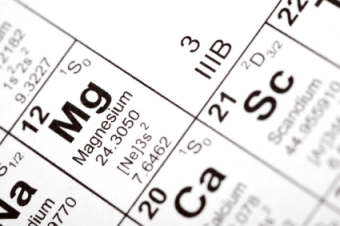Magnesium Supplements and Children
There is little doubt that magnesium is an important mineral for the health and wellbeing of adults – its importance is up there with the likes of calcium and iron. The body requires and uses it to maintain optimum cardiovascular and nerve function.
But what about magnesium supplements for children?

There has been much debate as to whether magnesium supplements are required and necessary for children. There is little doubt that children need magnesium as much as adults do. However, most of them will obtain sufficient from what they eat (albeit their dietary requirements are obviously lower).
Parents who provide their children with magnesium through their diet really have very little to be concerned with. Maybe it is the parents who provide their kids with magnesium supplements that are the ones who should be cautious.
What foods can provide magnesium?
There is a long list of foods that contain this all-important nutrient. You can get it in bran cereal, roasted cashews, roasted peanuts, soy milk, almonds and almond butter, cooked spinach, black beans, peanut butter, whole wheat bread, yogurt, brown rice, peas, bananas, milk, raisins, some kinds of fish and many other foods that are commonly available. It is up to you as a parent to come up with recipe combos that include these foods. Be careful with things like nuts, seeds and raisins with younger children – they are a choking hazard. You can grind them into a powder and sprinkle over foods.
If you are wondering how much magnesium your child should take in one day, the recommended amount for children aged between 4 and 8 is 110mg. You can easily get this amount through food and it is almost impossible to get more than the recommended magnesium through food.
What is the problem with magnesium supplements for children?
The problem with magnesium supplement is two-pronged: first, if your child is already getting enough magnesium through their diet (and there is a very good chance that the average child does), you risk overdosing them with supplements. Too much magnesium and they will suffer diarrhoea and there have been reports that excessive magnesium may actually lead to muscle cramps. So should you ever use magnesium supplements for children?
The answer is that it is best to get a doctor’s opinion first. If your child doesn’t have enough magnesium in their diet you may observe that they are sluggish, are listless and lack energy. However, it is important not to jump to any conclusions just yet. Take them to the doctor and get them to assess whether or not insufficient magnesium is the issue. If the doctor confirms that it is then he may give you a prescription for magnesium supplements for your child (although more likely is that he will ask you to modify the food you provide to your child).
One of the most common symptoms for magnesium deficiency in children is reportedly anxiety. They will become extremely fussy, almost like they have ADHD. Indeed, magnesium supplements are recommended by some for children who suffer ADHD and similar disorders. Again, before dosing your child with magnesium supplements it is important that you get a professional opinion from your doctor.
To conclude, your child needs magnesium and should get it from the food that you provide them. If you ever think that magnesium supplements may be beneficial for your child then always seek your doctor's advice.
